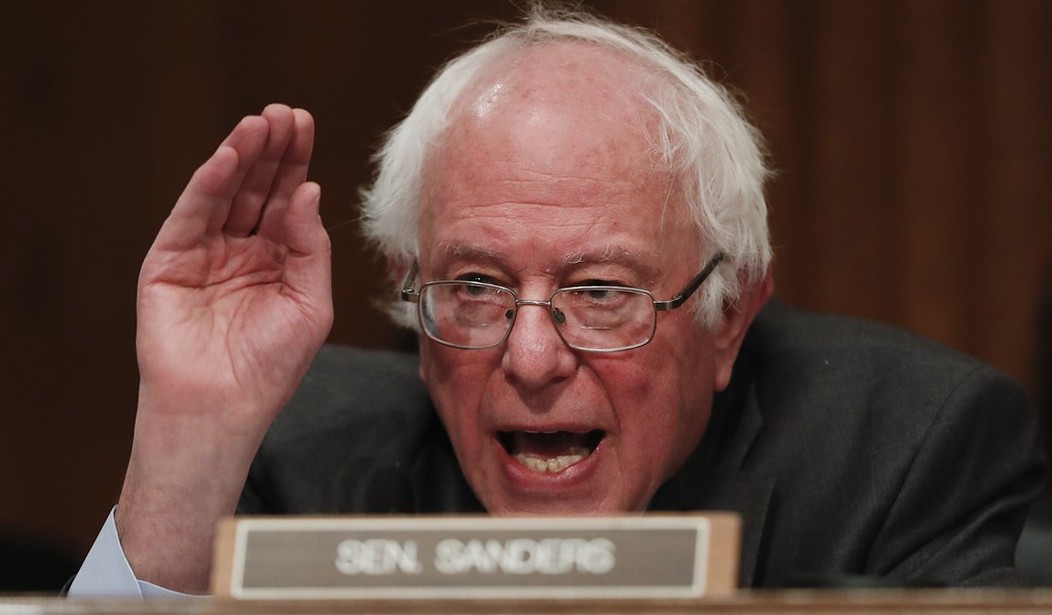The CNN healthcare debate between Senators Ted Cruz & Bernie Sanders on February 7 was dubbed a success by the network, ranking first in its cable time slot. With healthcare once again thrust into the headlines, and with two big personalities squaring off, this was certainly the marquee event, as was advertised. It turned out to be what one would have expected; a clash of ideologies, but a deeper look into what was said, and specifically what wasn’t, turned out to be most revealing.
Senator Sanders’ positions contained very little substance as he clung to his talking points which reflected his belief that healthcare was a right and that the government needed to provide it for everyone. Senator Cruz countered with several lines of attack, first giving an explanation regarding his interpretation of the definition of rights, maintaining that government giving something to individuals, in this case healthcare, did not constitute a right. He asked “why would we want to give the government MORE control over Americans’ healthcare, when they have done such a miserable job managing things up to this point?” Cruz concluded with the point that individuals are better at making healthcare decisions for themselves than the government. When the government does so, as in socialized countries, it leads to rationing- the government deciding what kind of care a patient may receive.
It was interesting that both men agreed that a big part of the problem stemmed from greed and excessive influence of special interests. Insurance and pharmaceutical companies were specifically singled out. Where they differed was their approach to solving this problem, retreating to their respective corners of the ring, with government control on one side versus a free market solution on the other.
Recommended
The Senators missed the biggest problem in healthcare however, which is not surprising because everyone else has as well - the high cost of care. The healthcare reform debate has focused exclusively on insurance coverage and access. What plan will the GOP create to replace Obamacare? Although a market based approach to healthcare insurance as is being offered by the GOP will result in substantial savings, the current cost of healthcare is unnecessarily high and will continue to be a strain on the American economy. There is a way out of this, but it does not appear to be on anyone’s radar.
The third major special interest, which went unmentioned in this debate is the hospital industry. Obamacare accelerated a trend which was to drive healthcare into the hospitals- the costliest place of delivery. It is folly to believe that taking an approach which focuses only on making insurance more affordable without doing something about the high costs of the healthcare itself, will have a significant impact on overall costs. Why should services be 5-10 times as expensive in the hospital as they would in free standing facilities? It defies logic.
There are many other factors that contribute to the high cost of healthcare that also need to be addressed. The third party payer system hides the true cost of healthcare, which really is not expensive when all of the overhead created by government and insurance bureaucracy is removed. Medical malpractice and frivolous lawsuits has created an adversarial relationship between doctors and patients giving rise to the practice of defensive medicine- performing an extra test or procedure, “just in case something rare could have been missed.” This practice results in annual costs between $200- $600 billion of mostly unnecessary spending that could be returned to patients.
The other major disappointment with this debate were the questions from the audience. CNN undoubtedly had an agenda in the selection of the questions and those chosen to ask them. It appeared that they wished to showcase typical “victims” – the ones who would lose their coverage if Obamacare is repealed. While this is understandably a concern for millions, and people are nervous, it might have been more illuminating to hear questions about other problems that are damaging our healthcare system and how Washington plans to deal with these issues. CNN squandered an opportunity to bring a doctor into the debate; one who was sitting in the first row and happens to be an expert in healthcare information technology and its problems. He was prepared with an important and insightful question but CNN thought otherwise.
In this latest round of the healthcare fight in America, a prudent person would realize that the so-called “experts” on healthcare- the policy wonks, the politicians, the healthcare economists, didn’t do so well the last time. To go back to what Senator Cruz said in this debate- why would we want to give them another chance at it? It is time to hear from the real experts in healthcare; those who have had to deal with the misery created by these “faux experts.” It is astounding how once again, the medical community has been excluded from this debate. CNN had a chance to begin to change the conversation by bringing a doctor into the discussion, but chose not to. They simply blew it.

























Join the conversation as a VIP Member